Yevhen Marchuk is taking part in the Minsk negotiations as representative of Ukraine in the Trilateral Contact Group’s working subgroup on security. He is doing this as a volunteer. Strictly speaking, Mr. Marchuk was invited when a heap of mistakes had already been made – Ukraine in fact allowed itself to be lured into a “diplomatic trap.” Has any success been achieved in the course of difficult talks? What is the current situation? Is there an alternative to the “Minsk format”? These questions were in the focus of The Day’s interview with Mr. Marchuk. Naturally, we also discussed some other topical issues. The latest events in the world, particularly in the light of the election of Donald Trump as US president, a tactical victory of Russia in Syria, a difficult political situation in the European Union, the growing clout of China, and the situation in Ukraine, require expert comments and forecasts.
Mr. Marchuk, what do you think of the new US Administration of President Donald Trump who has announced the “America First” policy? In what way should Ukraine build its relationship with the US so that it continues to apply sanctions against Russia and we can strengthen our relations and our defense capability – even perhaps receive lethal weapons?
“With due account of Russia’s behavior, Ukraine should use its foreign-policy and diplomatic resources in such a way that our relations with the US do not undergo drastic changes because America is going to be of more and more critical importance to us. It is obvious that only the United States can put the skids under Russia. The question is how the US will be evolving now that a new president had come to power.
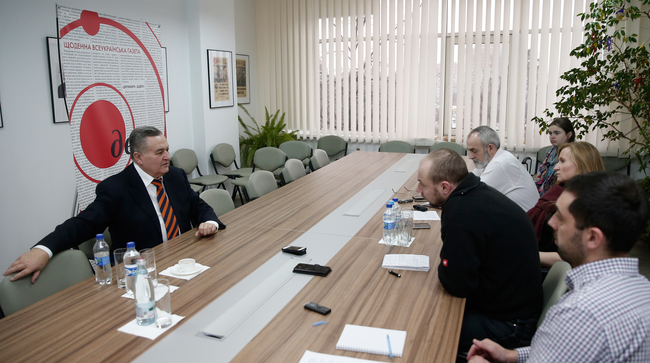
“Indeed, Trump made some statements during the election campaign and after the inauguration, which arouse concern in Ukraine. It is particularly about the new administration’s attitude to sanctions against Russia and the normalization of relations with Moscow. We also favor normalization, but at what cost? This is the essence of our concern.
“Yet there are some circumstances that soothe me a little. On the one hand, Trump, a brilliant personality, has never had anything to do with official governance, especially on a global scale, where the United States plays the leading role. This means his mentality and vision of the US evolution were forming a little differently than in the case of governmental institutions. As a matter of fact, this helped him win the elections, for he came down to the level of ordinary people’s problems.
“But, on the other hand, Trump has never had access to official secrets or dealt with strategic documents and problems. Of course, he guessed something and saw something through the prism of big business and his public activity. But this is a tiny fraction compared to what is going on in the closed part of the state. And what makes me more convinced now is Trump’s first meeting with the CIA, where he said he was the best ever friend and admirer of this special service. So I don’t think Trump is so simple as to remain the one he was during the election campaign. Moreover, look at his appointees, especially in the security sector. Are they amateurs, populists, and, as we say, new faces? No, they are well-known Congressmen and ‘seasoned’ generals. Beside, owing to the system of checks and balances in the US, Trump will be able to do very much but not everything.
“The growing awareness of the US being a global player will force Trump to take a closer look at the foreign policy, particularly from the angle of worldwide security. I am sure he will essentially modify his approaches to tackling global security problems.
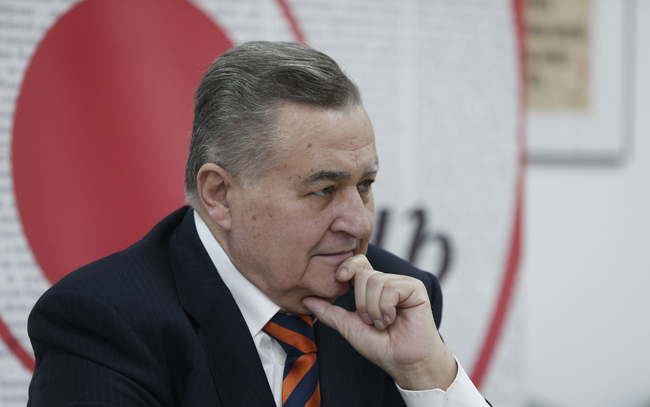
“Of course, Russia is on the alert and working rather actively to fuel the isolationist sentiments Trump often showed during the election campaign. Besides, Russia skillfully took advantage of the transitional period in the US government and practically won ‘the Syria round’ – in both military and foreign-policy terms. The recent Astana meeting on settling the Syrian crisis proves that Russia has in fact paralyzed the US role in resolving this crisis at this stage and reinforced its positions in the region. But it is still not clear what results this will produce. The Syria campaign has allowed Russia to gain more international optimism of sorts, which she is actively making use of in her domestic policy, even though she hushes up on what this optimism cost her.
“I don’t think the US will lose interest in Ukraine, which Russia wants so much. The new US administration will have to switch to strategic thinking in the next few days. Trump himself will perhaps focus on domestic matters at the first stage, but this does not mean he will ‘forget’ foreign policy.
“The main thing is that we, in Ukraine, must not panic. I would draw your attention to the fact that Ukraine will vote this year at the US Security Council as a non-permanent member. It is a colossal resource, and we should effectively use it. During the vote in 2017, we should propose not one but several logically-linked initiatives. Naturally, they must first of all be about the war, annexation of Crimea, and Russian aggression.
“As for Trump’s attitude to the North Atlantic Alliance, one should look at the public component of our Ukraine-NATO plans. The point is that public awareness has been infected with all kinds of viruses spread by Russia and some of our media. They are saying: NATO is not expecting us. Indeed, one must be a very naive romantic to raise the question of Ukraine joining NATO in the immediate future. It is really a difficult and long road. But to toy in the media with the idea that it is impossible and even inadvisable to join NATO in the future means not only to play up to Russia, but also to cast doubt on Ukraine’s European choice.
“As is known, Russia has seriously reformed and essentially reinforced her Western Military District. It was reported the other day that the Kremlin was forming a new division near our borders. Moscow conducts various military exercises in this district almost annually. Suffice it to recall the exercise of Russian attack aircraft on the territory of Belarus past year, with imaginary targets to be hit in Ukraine. Besides, Russia has reportedly ordered several times more trains to carry cargo to Belarus in 2017.
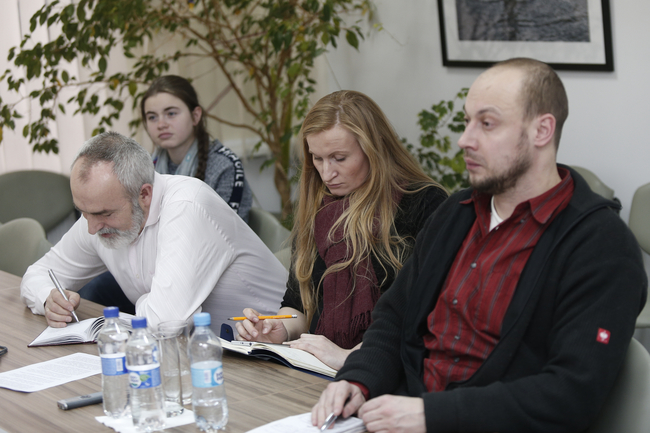
“It looks very strange against this security background that Ukraine has not been sending its ambassador to Belarus and permanent representative to NATO for more than a year.
“In a word, instead of anguishing over the change of power in the US, we must seriously address our security problems. It will be more and more urgent to rely on our own resources.”
And what can we offer the United States?
“We must understand that we cannot raise the question of tapping NATO’s security resource all the time without thinking of what we can give in exchange. Yes, we are saying that Ukraine is an outpost in the face-off with a revenge-seeking Russia. And it is good that it was said at the Alliance’s latest summit in Warsaw that Ukraine was playing the role of an outpost against Russia’s expansion towards Europe. I think our foreign-policy machine, which also comprises the security component, is now facing a very serious challenge – what we can offer and, in general, how to build relations.”
Do you think it is worthwhile for Ukraine to stake on economic rapprochement with China? For analysts argue that the world is going through an acute crisis of leadership, which may result in radical transformations on the world’s geopolitical map, and China is a serious rival of the US in the struggle for leadership.
“Trump once said that, after terrorism, the main problem of the US was not so much Russia as China. Russia responded to this in the media. There were proposals to play in this situation on rapprochement with China. But sound-minded experts answered that Russia would then surely lose. There should be a balance in the Russia-US-China triangle. For if Russia stakes on befriending the US against China, I don’t think this will benefit her – this will greatly aggravate the existing problems in the Far East. On the other hand, if Russia makes it clear to China in some way that she is ready to befriend it against America, the US will create big problems for her.
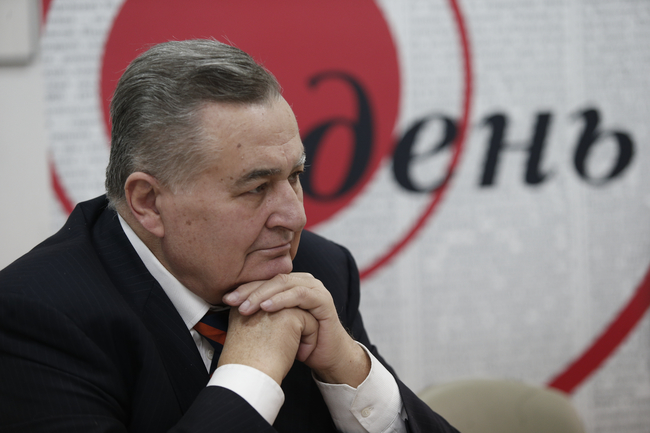
“China has always had food problems, while Ukraine has a colossal agrarian resource. Maybe, Xi Jinping and Petro Poroshenko managed to discuss this matter in detail at Davos.
“For Ukraine, China is the second, after the US, country of the main foreign-policy interest. Naturally, the European Union will remain of importance for a long time, although it is beset with serious ruinous processes and there is a danger of lifting the anti-Kremlin sanctions. The European ‘bridgehead’ is really precarious for us today. So we should work to enlist China’s support. We may or may not succeed, for this ‘player’ can sit on the riverbank very long and wait [‘If you sit on the riverbank very long, the corpse of your enemy will sooner or later drift past you’ is a Chinese popular wisdom. – Ed.].”
And what about the European Union? What do you think is the future of this geopolitical commonwealth, taking into account the events now underway in a number of EU leading countries? How is Ukraine to behave in this case? Should we enter the EU without Britain? Or is it better to choose, for example, Norway as a model, for it enjoys all trade preferences as an EU member without being a member?
“Taking into account the strategically important factors on which the European Union is based, I would not consider all the EU countries as a top priority. Of course, support from Germany, which will be increasingly taking on the role of European leader, especially with due account of Britain’s withdrawal, will remain important to us. Incidentally, we can take advantage of this situation and considerably revitalize our bilateral contacts with Britain. The latter will remain an influential world player.”
It is more and more often heard today that the Minsk Accords, as well as the format itself, have reached a deadlock. Can you see an alternative to this process? What tactics and strategy should the Ukrainian government pursue in this situation?
“Russia will drag it out on the Donbas until it finally ‘puts the record straight’ with the new US leadership in order to keep Ukraine in a state of war and make it drain her economic and demographic resources. The paradox lies in the very text of Minsk 2. I can understand that when this document was being drawn up, there was a rush, including the events in Debaltseve. But the root cause of all the problems is Russia’s attempt to make it look as if Ukraine is not meeting her commitments. It will be recalled that when Minsk 2 was signed, Russia immediately initiated its approval by the UN Security Council. Russia, not Ukraine. She hastened because this approval highlighted the Minsk 2 clauses that provide for political settlement in the Donbas.
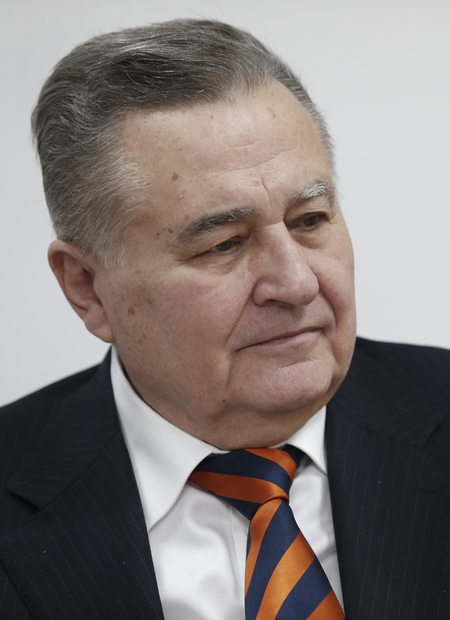
“We insist that the logic of this document says that, at first, measures should be taken to stop the hostilities and carry out thorough demilitarization of the Donbas and only then it will be possible to begin addressing political problems. As is known, Russia is saying that everything should be done simultaneously and alleges that Minsk 2 sets out no strict succession in taking the stipulated measures.
“The so-called trench warfare is going on in the Donbas today. The two sides are facing one another and know the enemy’s positions down to the meter sometimes. The distance between the sides is sometimes up to 700 meters, which is one of the things that provoke shootouts.
“This led to the attempts to disengage the troops in small areas through the mediation of OSCE at least one kilometer to the left and right of the line of contact. It is not an easy thing to do, for mutual distrust of the sides goes beyond the limit. But it should be taken into account that any serious settlement of this kind of situations is practically impossible without disengagement of troops (by much more than a kilometer and without ceasefire). This stage of settlement must be passed by all means. This in turn means that it is necessary to begin with small things, try out various procedures, and draw up relevant documents.
“Naturally, the disengagement of troops is also linked to many other non-military problems. In particular, there must be no so-called ‘gray zones,’ what is also needed is accurate organization of the viability and safety of towns and villages in the disengagement zone, and many other problems must be solved.
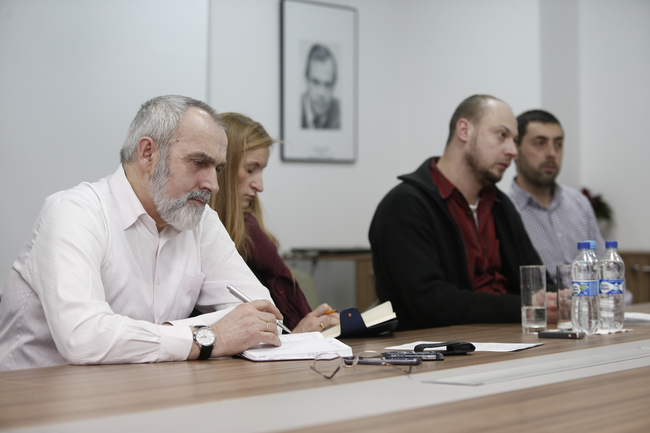
“What serious initiatives, in addition to military ones, should we work out? There were 220 conflicts of this nature, which the UN dealt with. Our side has thoroughly studied more than 60 of them. The conflict in Northern Ireland, which resembles the Donbas situation to some extent, lasted for 29 years, including 4 years of negotiations. There has been peace there for about 20 years, although they still have a lot of problems. But the point is that people are living in peace and are not dying there. We studied in detail, also on the spot, the way the situation in Northern Ireland was settled.
“Some members of the government began recently to speak about de-occupation of the Donbas. People keep on asking what this means. For Russia is not saying so far that she is leaving the Donbas. Russian TV channels broadcast these statements and comments to them every other day. Does de-occupation mean liberation of a territory by use of armed force? President Petro Poroshenko says we will regain the Donbas, but he has been repeatedly saying there can be no military resolution of this problem. What is the ordinary individual supposed to think in this case, what must he or she be prepares for? Let us imagine that the Russian troops have retreated from the occupied territories owing to international circumstances (of course, in theory only), and militants have run away. The Ukrainian authorities return to these territories, and what do they come across? Firstly, there are some deep-seated phobias about the ‘Kyiv junta’ which will put everybody inside, etc., if it comes back. At the same time, almost 1,700,000 (or even much fewer) forced migrants will come back to the Donbas. Let us not forget that many of them will still harbor a big grudge and a thirst for revenge, vendetta. Likewise, a lot of people will come back from Russia. In other words, this will create zillions of difficult problems.
“So what initiatives should the Ukrainian authorities demonstrate? I suggest that the Ukrainian government draw up and make public a comprehensive plan of the Donbas’ peaceful reintegration. Let us set aside a military scenario on the part of Ukraine, when Russia is sure to launch an offensive and our Western partners will turn their back on us, for this will amount to violation of the Minsk Accords.
“During the reintegration, we must dispel the phobias of the local population on the temporarily occupied territories. We must clearly explain to them how lost property and business problems will be tackled, who and to what extent will help those who have suffered losses, what investments will be made in building the infrastructure, restoring the enterprises, and creating jobs. There is also the question of what will happen to those who collaborated, one way or another, with the aggressor and the local occupational authorities. In what way is Ukraine to pardon those whose hands are not stained with blood? What guarantees will the Kyiv government offer on these territories? In a word, what is needed is a detailed plan of the Donbas’ reintegration, which will comprise a time schedule for all the problems as well as the principles of funding this process.
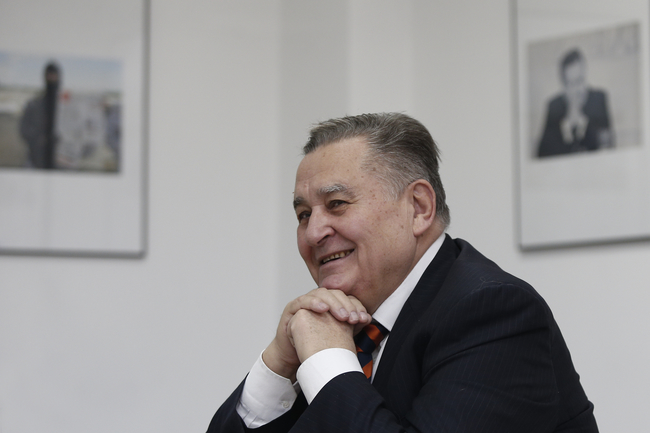
“This requires extremely hard preparatory work. Besides, this document will have to go through the Verkhovna Rada, which will be not a simple thing at all. This is indispensable. All this must be worked out and brought across to people. I am convinced that if a drone threw around a million of flysheets with this program, say, over Luhansk, people would collect them all.
“It is not only Ukraine that needs a plan like this, for it will show to the international community, especially the UN, that Ukraine is really getting ready for a peaceful (I stress, peaceful) reintegration of the Donbas.
“I have thus described very briefly and superficially what is known as reintegration with a transitional period and a caretaker administration. This experience is different in various countries. Naturally, we will have some innovations of our own.”
It is not only Arsen Avakov, but also Heorhii Tuka who said the phrase about de-occupation. Vadym Chernysh, Minister for Temporarily Occupied Territories, claims that the strategy of de-occupation was mapped out in the summer of past year. They are officials, not just experts or commentators. What stands behind these official statements: agreements, real possibilities of an offensive, or empty words? Is there perhaps a danger that they want to show us the de facto occupied territories under the guise of reintegration and thus make it possible to lift sanctions against the aggressor and even absolve the latter of guilt in occupying our lands?
“Of course, we should not be naive and believe that Russia will accept our proposal about reintegration of these territories. For the integration plan should include a clearly defined sector for the formation of local governmental bodies – maybe, at first temporary and then elected administrations. We will hold elections under the Ukrainian law and create the corresponding conditions for this. We should be realists and understand that, under the current circumstances, Russia will not leave the Donbas soon. The reintegration plan is a strategy based on being aware that this integration will take a very long time. Even under ideal conditions, this will take years. We ourselves do not know exactly the further course of events. But we must be prepared both for an aggravated situation and for a situation when Russia will be forced to cede its positions.
“The strategy of reintegration is, above all, a document that will tell the whole world that we have serious intentions to regain our territories – not just to spell out empty-worded statements that are not based on objective realities. In any case, at this stage, the two sides should withdraw their troops, to begin with. We should not forget, either, that 36,000 militants from two army corps still remain behind on the occupied territory. They are all armed people. What is to be done with them? Everybody to prison? In Ukraine, no one will ever accept a general amnesty, although this was the case in some countries – they had drunk enough blood and drew the line. In any case, we will only be able to discuss these prospects after the elections in France, the next steps of Trump, and so on. It is also a fact that the Russian and Ukrainian military forces are now taking such positions that the conflict may escalate sharply at any moment.”
Conflicts like this are also called wars of the economies, for the country that has a thicker “streak of fat” will win…
“A war is, above all, resources.”
At the very beginning of your involvement in the Minsk process, you pointed out that you participated in the negotiations as a volunteer. To what extent have your intentions and hopes come true?
“It is a simple approach to stand aside and criticize. I will be doing my best to achieve at least some result for the country. I emphasize – for the country. What I consider the most important result is ceasefire in September-October past year, for this allowed saving a lot of lives. The negotiations were very difficult. We managed to clear of mines and repair 12 facilities on the line of contact. Those were critical life support facilities – gas, water, electricity, bridges... The troops were disengaged at one kilometer to both sides. Yet, for some reasons, we failed to disengage the forces in Stanytsia Luhanska. The roads to checkpoints and checkpoints themselves were cleared of mines, for there had always been a danger to strike a mine near the road. A 30-kilometer buffer zone free of heavy weapons was established under the OSCE supervision. We also reached a special agreement to ban military exercises in the safety zone with the use of artillery, mortars, and other weapons because such exercises provoked the other side to open fire in response. My approach is: do what you can as long as you can to save at least one human life. And we will speak of the Minsk process’ downsides some other time.”







